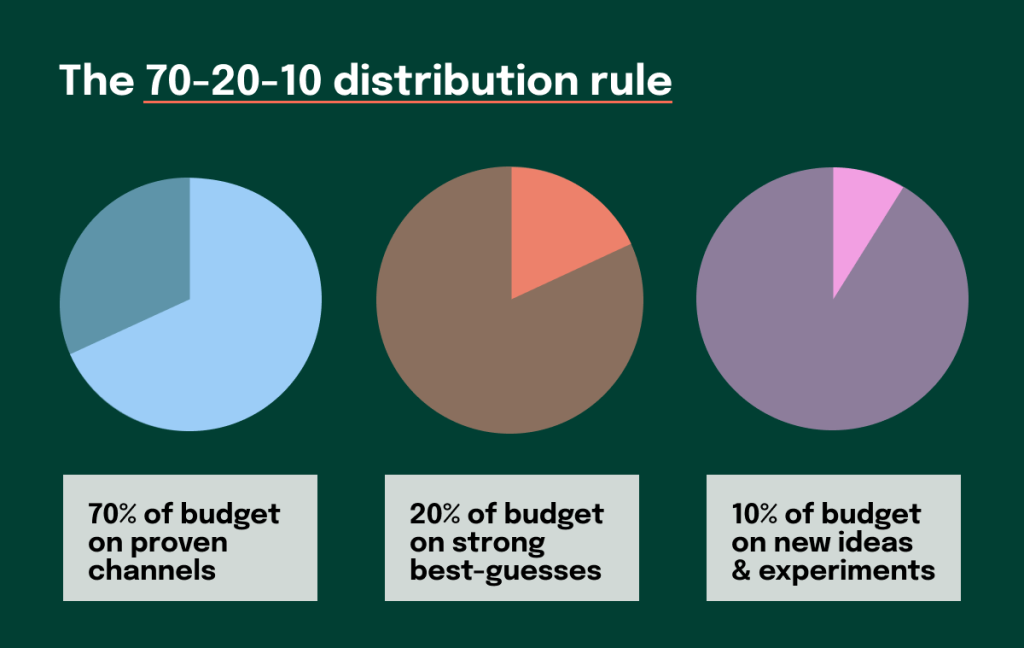Having a well-defined marketing budget is essential for success. Whether you’re a small business or a large corporation, planning your marketing budget effectively can make the difference between an ineffective campaign and one that delivers strong ROI. At 23 Digital, we understand the power of a well-thought-out digital marketing strategy, and this guide will walk you through the process of planning a marketing budget that maximises your digital marketing efforts.
A digital marketing strategy should be at the heart of any marketing budget, ensuring that each dollar spent contributes directly to your business’s growth. From content marketing and social media campaigns to SEO optimisation and pay-per-click advertising, it’s critical to allocate resources wisely. By the end of this article, you’ll have a clear understanding of how to structure your budget, track spending, and optimise your strategy for maximum results.
1. Understand Your Business Goals
Before diving into the specifics of a digital marketing budget, it’s crucial to understand your business goals. Every digital marketing strategy should align with your larger business objectives. Ask yourself the following questions:
- Are you aiming to increase brand awareness?
- Do you want to drive more leads or conversions?
- Is your focus on customer retention or improving engagement?

Having a clear picture of your objectives will guide your budget allocation. For instance, if your goal is to drive more conversions, investing more heavily in conversion rate optimisation (CRO), pay-per-click advertising (PPC), or email marketing could be more effective. If brand awareness is your priority, then more focus might be needed on social media campaigns, content creation, and influencer partnerships.
2. Assess Your Current Marketing Efforts
Understanding where you currently stand is a crucial step in planning your budget. Take a deep dive into your existing marketing activities. Evaluate the following:
- What’s working well? What’s generating leads, building your brand, or engaging your audience effectively?
- Where do you need improvement? Are there gaps in your content strategy, social media presence, or paid advertising campaigns?

By reviewing the current performance of your marketing strategy, you can identify areas for optimisation. It also helps you understand which digital marketing channels are yielding the best return on investment (ROI) and where you might need to shift your focus.
3. Define Your Digital Marketing Channels
Your digital marketing strategy will involve several channels, each requiring a specific allocation of your marketing budget. The most common digital marketing channels include:
- Content Marketing: Blogging, articles, ebooks, and whitepapers that generate organic traffic and nurture leads.
- SEO: Search engine optimisation, including on-page and off-page strategies, to improve organic search rankings.
- Social Media Marketing: Organic and paid social media campaigns that help you connect with your audience on platforms like Facebook, Instagram, LinkedIn, and Twitter.
- Email Marketing: Targeted email campaigns that build relationships, nurture leads, and drive conversions.
- Paid Advertising: Google Ads, Facebook Ads, LinkedIn Ads, and other forms of paid media that drive immediate results.

Each of these channels should be allocated a portion of your marketing budget, depending on how they align with your goals and objectives.
4. Decide on Your Budget Allocation
Now that you’ve identified your goals, reviewed your existing efforts, and defined your marketing channels, it’s time to allocate your budget. The allocation will largely depend on the size of your business, your digital marketing priorities, and the specific goals you want to achieve.
Here’s how you can break down your marketing budget:
- Content Marketing: 20-30% of your budget could be allocated here if you want to build long-term organic traffic. Content creation, copywriting, and distribution are vital for nurturing leads and providing valuable information to your audience.
- SEO: 20-25% of your budget can go towards search engine optimisation efforts. Investing in SEO ensures that your content ranks higher on search engines, making it easier for potential customers to find you.
- Paid Media: If your goal is to drive immediate traffic, PPC and paid social media campaigns can take up 25-40% of your marketing budget. This will give you the ability to scale quickly and target specific demographics effectively.
- Email Marketing: 10-15% of your budget can be dedicated to email marketing, which allows you to nurture existing leads and retain current customers.
- Social Media: Allocate 10-15% for organic social media campaigns, which helps maintain your brand’s presence and grow your follower base.

It’s essential to remain flexible when allocating your budget. As you track results and analyse performance, you might find that certain channels are delivering better results than others. If that’s the case, don’t hesitate to reallocate your budget to the most successful channels.
5. Consider the Tools You Need
A well-planned digital marketing strategy often requires various tools to enhance efficiency and monitor performance. These tools may include:
- Marketing Automation Software: Platforms like HubSpot, Marketo, and Mailchimp automate processes such as email campaigns, social media posting, and lead nurturing.
- Analytics Tools: Google Analytics and other reporting tools allow you to track website traffic, conversion rates, and ROI on your marketing campaigns.
- SEO Tools: SEMrush, Moz, and Ahrefs help track keyword rankings, backlinks, and overall SEO performance.
- Social Media Management: Tools like Hootsuite and Buffer help you schedule posts, track engagement, and analyse the success of your campaigns.
- Design and Content Creation Tools: Canva, Adobe Creative Suite, and other design platforms make it easier to create engaging content.
Investing in the right tools is critical, as they help streamline your efforts and give you better insight into the effectiveness of your marketing strategy.
6. Set a Clear ROI Expectation
Any Online marketing budget should be aligned with ROI goals. As you allocate your funds across various digital marketing channels, you should be clear about the return you expect to see from each one. Whether your goal is to increase traffic, generate leads, or improve conversions, setting measurable goals is essential.
To set realistic expectations, you should use the following approach:
- Track Metrics: Use tools like Google Analytics and social media insights to track key performance indicators (KPIs) such as traffic, leads, conversions, and revenue.
- Evaluate Campaigns: Regularly assess the success of your marketing campaigns. This will help you optimise your budget and adjust your strategy to ensure maximum ROI.
- Set Benchmarks: Understand industry standards and past performance to set achievable ROI expectations. Aim to improve year-over-year performance.

As a digital marketing agency, 23 Digital has extensive experience in creating data-driven strategies that not only meet but exceed our clients’ ROI expectations. By setting clear goals and consistently measuring performance, you’ll ensure that your marketing budget is used efficiently.
7. Monitor and Adjust Your Budget
A marketing budget is not a static document. As you execute your digital marketing strategy, it’s essential to continuously monitor your campaigns and adjust your budget as needed. Successful digital marketing is based on agility, and having the ability to adjust your spend to focus on what’s working best is crucial. Usually, your digital agency should help you develop KPIs and dashboards so that you understand key metrics without spending too much time.

For example, if you find that SEO efforts are driving more traffic than paid ads, consider reallocating funds to maximise the impact of your SEO campaign. Alternatively, if a new trend emerges or a new platform shows great potential for customer engagement, you may decide to divert resources there.
Conclusion
Businesses that fail to plan their digital marketing strategy effectively risk wasting precious resources. By following the steps outlined in this guide, you’ll be able to plan a marketing budget that maximises your digital marketing efforts and generates measurable results.
At 23 Digital, we understand the importance of crafting tailored digital marketing strategies that align with your business objectives. Whether you’re looking to increase brand awareness, drive conversions, or build a loyal customer base, a well-planned budget and a clear digital marketing strategy are essential for success.
If you’re ready to take your marketing efforts to the next level, we’d love to help. Reach out to us at 23 Digital, your trusted digital marketing agency, and let’s work together to create a winning strategy for your business.







